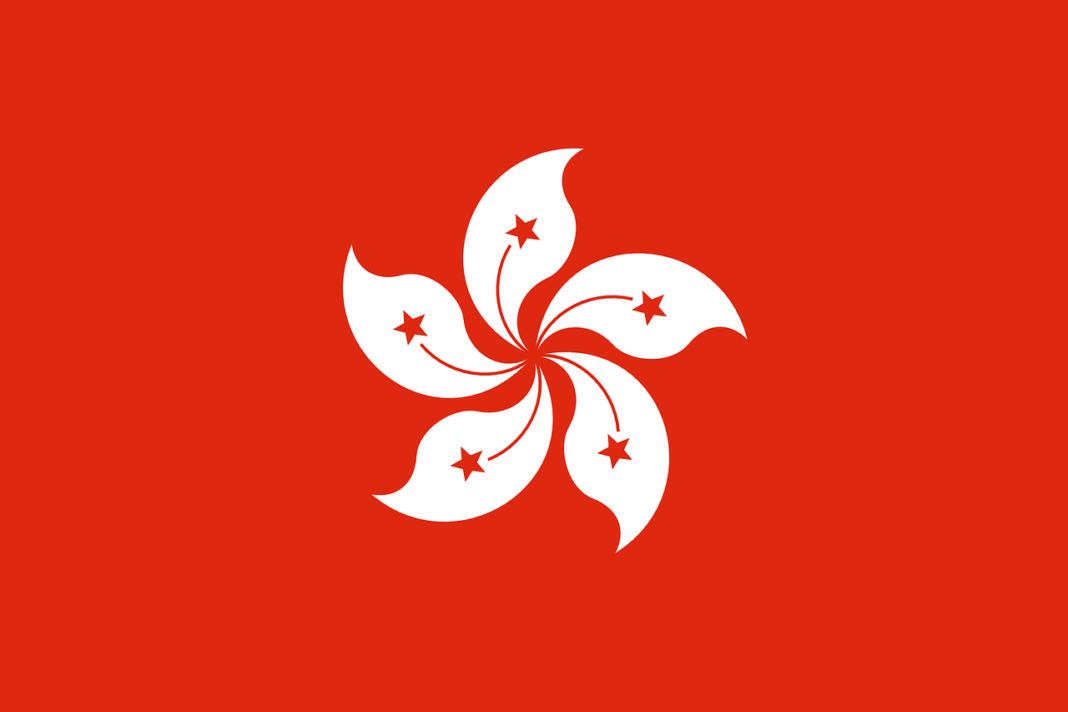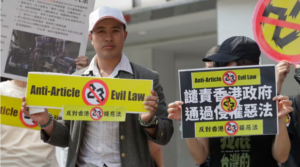Days after Honkong’s pro-Beijing lawmakers passed it unanimously, Article 23 came into force at midnight of Saturday, which is a fast-tracking legislation to plug what authorities called national security loopholes. This new national security law is facing international criticism as it could erode freedoms and human rights in the city that is ruled by China and damage its international financial hub credential.
In this blog, we will deeply explore what Article 23 is and the raising concerns toward this law.
A maximum of ten years in prison for criticizing the government.
2009 saw the repeal of the sedition statute in the UK, which the Justice Minister at the time referred to as a “arcane law from a bygone era.” But thanks to Article 23, the Hong Kong administration appears ready to intensify its use of a sedition statute from the colonial era, which had been dormant for 50 years.
It has taken a quarter-century to create this law.
The governments of China and the United Kingdom granted Hong Kong its own mini-constitution, known as the Basic Law, when the former ceded the former over to the latter in 1997. According to Article 23 of the Basic Law, Hong Kong “shall enact laws on its own” to outlaw seven different categories of offenses related to national security. However, no such law was ever enacted; in 2003, an attempt to enact Article 23 was abandoned in response to widespread, nonviolent demonstrations.
Hong Kong law now follows China’s definitions of “state secrets” and “national security.”
The new law adopts mainland China’s definition of “national security,” which is a broad term that encompasses “major interests of the state.” Practically speaking, this refers to everything.
The law also establishes mainland China’s very broad definition of “state secrets,” which includes any scientific, technological, social, or economic advancement—even if it has never been formally designated as a secret. Furthermore, the Chief Executive, who is in charge of Hong Kong, has the power to attest to the fact that no document contains state secrets. Thus, once more, practically anything may be regarded as a “state secret.”
Interacting with foreigners is more dangerous
A maximum 14-year sentence is imposed for the new offense of “external interference,” which is defined by Article 23 legislation as any collaboration between an individual and “external forces.” Once again, the legislation is incredibly ambiguous: it stipulates that cooperation with a “external force” must occur with “unlawful intent” and “improper means.”
The law further broadens the definition of espionage; for example, collaborating with a “external force” to disseminate false or misleading information may now result in a 10-year prison sentence.
What precisely are “external forces,” then? They can be foreign governments, foreign political parties, international organizations, foreign organizations pursuing political goals, or any connected body or person to any of those bodies, as defined by Article 23.
It’s probable that the rule will be applied to confuse lawful collaboration between Hong Kong citizens or organizations and foreign organizations, such as those in commerce, academia, civil society, or even the UN. If foreign nationals commit these “crimes” in Hong Kong, they may potentially face legal action.
If you fail to report others, you can go to jail.
Any Chinese citizen, which includes the majority of Hongkongers, is required by this new national security law to report to the authorities any information they have concerning the treasonous acts of others. Failing to comply may result in a sentence of up to 14 years in jail.
This essentially makes it mandatory for citizens of Hong Kong to spy on their fellow citizens. It’s likely to exacerbate the already-present dread among Hongkongers and restrict their ability to openly voice their thoughts in their social groups and communities.
Police powers increased, captives’ legal rights reduced
When it comes to handling crimes involving national security, the new law gives the police broad new authority. They can detain someone for up to 16 days without filing charges if a magistrate approves (before it was two days). They may also forbid the individual from seeing any attorney during the first 48 hours following their apprehension or from seeing a particular attorney while in custody.
The leader of Hong Kong is able to enact new laws on their own.
The new law grants the Chief Executive the authority to independently enact subsidiary laws at any moment in the sake of “safeguarding national security.” This supplemental law may be implemented immediately and may result in a maximum sentence of seven years in jail.
Although the Article 23 law’s ambiguous and expansive wordings theoretically prevent subsidiary legislation from going outside its purview, there is still much room for arbitrary lawmaking.
New authorities will target Hongkongers abroad
The bill gives the government the authority to penalize “absconders” who are suspected of committing national security offenses but have not been found guilty of them, a move aimed at the diaspora population and activists who have relocated overseas. The government is now able to take actions like revoking people’s passports from Hong Kong or revoke their licenses to practice law.
Vague new technology that targets offenses
The new law creates a brand-new crime called “acts endangering national security in relation to computers or electronic systems,” which carries a potential 20-year jail term and has global applicability. But these “acts” are not defined by the law. During the consultation period, the administration only mentioned the “rapid development of technologies” and possible hacking. This crime is obviously susceptible to arbitrary abuse due to the vague legal definition and lack of legal clarity.
The law was passed in Hong Kong without any resistance.
Because Article 23 restricts human rights, it has always been a contentious topic. When 500,000 people protested the law in a 2003 march, the administration was obliged to postpone its enactment.
However, Hong Kong is a totally different city in 2024. The National Security Law, which was passed in 2020, has almost eliminated criticism. A large number of opposition politicians, journalists, and activists have been imprisoned; others have escaped. Now, peaceful protests against government policies are either outlawed or severely restricted.
In light of the fact that its opponents would be essentially unable to block it, the administration was able to eventually adopt Article 23 legislation.
Worldwide Censure
Those who have opposed the law most strongly include the US, the EU, Japan, and the UK. UK Foreign Minister David Cameron claimed the measure will “further damage the rights and freedoms” of people living in the city.
On Friday, US Secretary of State Antony Blinken voiced “deep concern” that the law would be used to suppress dissent and violate human rights, noting that it might harm Hong Kong’s standing as a global center of finance.
In the meantime, travel advisories for Hong Kong have been updated by Taiwan, the UK, and Australia, who advise people to proceed with care.
The Australian government stated, “You could break the law without intending to, be detained without charge, and be denied access to a lawyer.”
145 community and advocacy groups have denounced the bill and demanded consequences against Hong Kong and Chinese authorities involved in its adoption, along with an evaluation of the situation of Hong Kong’s Economic & Trade Offices globally, in a joint statement spearheaded by the Hong Kong Democracy Council, an international organization.
“It’s time for the US to support Hong Kong’s freedom and political prisoners.” During a press appearance with the US Congressional-Executive Commission on China (CECC), which advises Congress, wanted Hong Kong campaigner Frances Hui to state, “Every time we let authoritarians get away with atrocities, we risk other bad actors attempting to do the same.”
More than a dozen activists from Tibet, Taiwan, and Hong Kong gathered to demonstrate against the law and yell their condemnations in Taipei’s upscale Ximending retail area. Australia, the UK, Canada, Japan, and the US are all planning additional protests.
However, Hong Kong authorities have “strongly condemned such political manoeuvres with skewed, fact-twisting, scaremongering, and panic-spreading remarks.”
Which way does China stand?
China has justified Hong Kong’s security crackdown, arguing that it was necessary to bring back order following months of pro-democracy and occasionally violent antigovernment rallies in 2019.
To date, 174 individuals and five corporations have been charged with national security offenses, resulting in around 291 arrests.
While individual rights are honored, no freedom is unassailable, according to Chinese officials who maintain that everyone is equal before the security rules that have brought stability back.



